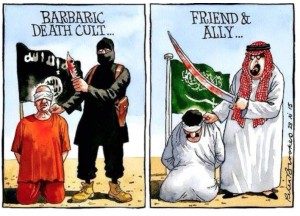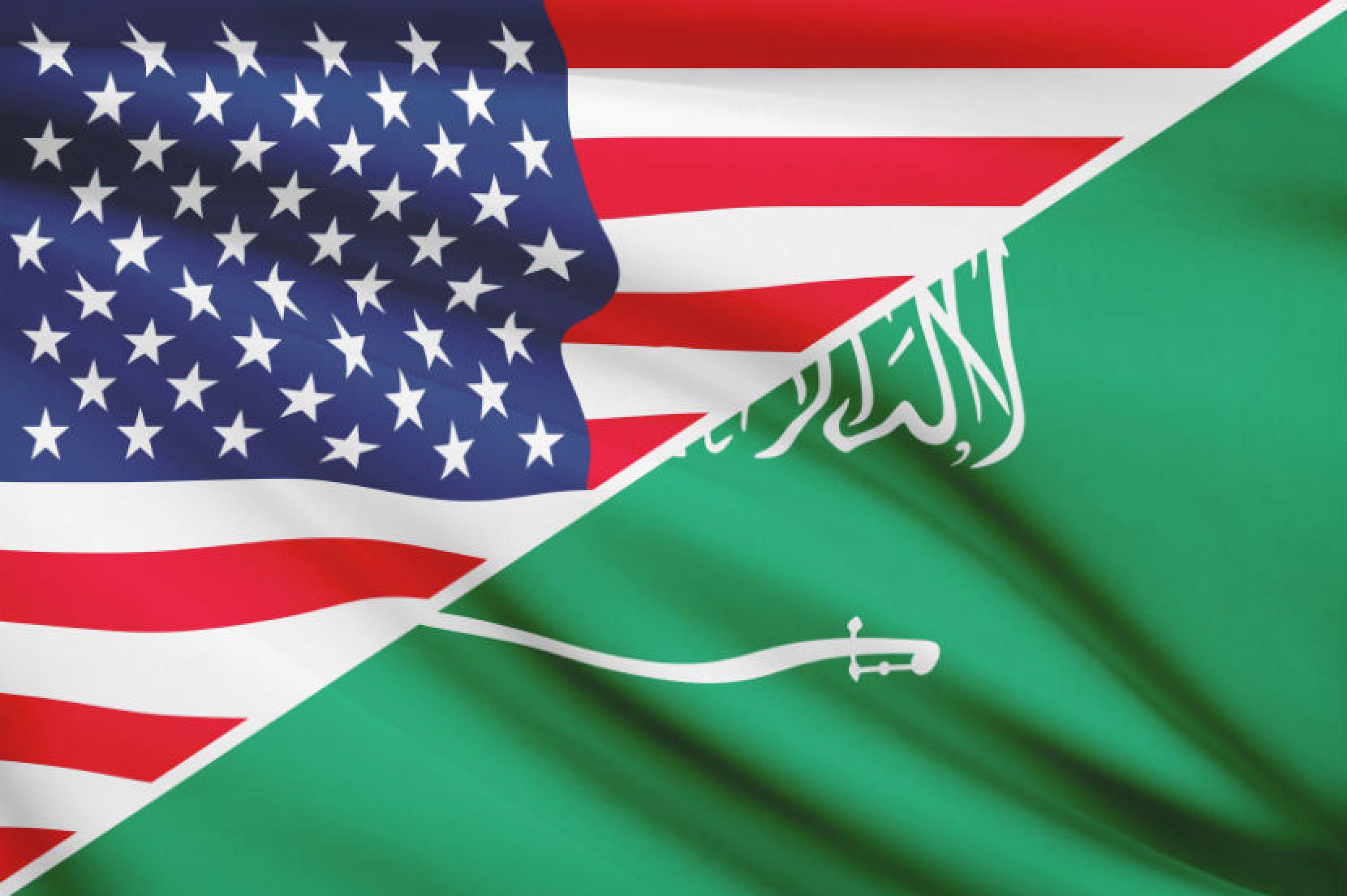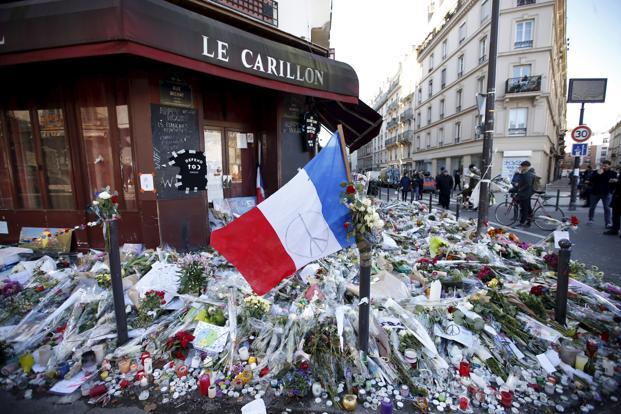Within a week of taking office, President Donald Trump had, according to some, followed through on a promise he first made in December 2015 to “shut down” Muslim immigration by signing an executive order barring entry to passport holders from seven Muslim-majority countries. The countries on the list, which include Iran, Yemen, Somalia, Sudan, Libya, Iraq, and Syria, ended up on the list for different reasons, with some like Syria and Yemen undergoing devastating civil wars, while others like Iran and Sudan are likely on the list due to their status as “state sponsors of terrorism.”
According to Trump, this executive order was issued to “ensure that we are not admitting into our country the very threats our soldiers are fighting overseas.” While much of the traditional media and many social media users referred to this order as a de facto Muslim ban, conspicuously absent from the list were Muslim majority countries like Lebanon, Egypt, Turkey, the United Arab Emirates, and Saudi Arabia. Speculation as to why those countries were excluded largely centered around the fact that certain countries left off the list are places where Trump has either registered companies or operates properties under his name. Naturally, this led to many assuming that these states, despite their connection to extremist groups, received preferential treatment from Trump due to business interests. However, at least in the case of Saudi Arabia, this is a merely continuation of U.S. foreign policy that grants the Saudi government exceptional status.
Since the 1980s, U.S. foreign policy in the Persian Gulf has been centered around the Carter Doctrine. The Carter Doctrine, introduced by President Jimmy Carter during his 1980 State of the Union address, was a foreign policy initiative originally instituted to combat Soviet influence by pledging to defend the Persian Gulf from any country that attempted to gain control in the region. Naturally, this meant preventing Soviet influence from reaching powerful allies like Saudi Arabia. Although the Soviet invasion of Afghanistan was the primary reason for the creation of the Doctrine, the loss of Iran as an ally in the Gulf region encouraged subsequent President Ronald Reagan to issue a corollary to the Doctrine. This corollary stressed that Saudi Arabia couldn’t “be an Iran” and resulted in him granting Saudi requests for everything from defense pledges to shipments of weapons and fighter planes. In fact, from 1976 to 2000, the United States spent nearly $8 trillion protecting Saudi Arabia and other Gulf monarchies.
Of course, there must be a critical reason why the United States has spent trillions of dollars protecting Saudi Arabia and its neighbors. According to some military experts, cooperation with Saudi Arabia has only aided in the fight against terrorism, pointing to the military alliance it established with other Muslim countries to counter terrorism as well as how it “foiled” attacks by al-Qaeda supposedly directed at the United States. Many others, especially those with close ties to Israel or its government, see Saudi Arabia as an important check on growing Iranian influence in the region, especially since the Iranian government has backed Bashar al-Assad in Syria, Hezbollah in Lebanon, and the Houthi rebels in Yemen. While some argue that Iran is merely protecting Shi’a interests in the region, many pundits and politicians inside and outside of the Middle East believe Iran has malicious intent to expand its influence in the region and that Saudi Arabia, the strongest Sunni power in the region, is the only thing standing between order and chaos. But does this mean it’s really worth billions of dollars to prop up the House of Saud?
Although Saudi Arabia has become more active in the Middle East in the decades since the issuance of the Carter Doctrine, its domestic affairs and national ideology may say more about it than its activities abroad. First and foremost, Saudi Arabia is an absolute Islamic monarchy where the Qur’an and Sunnah (examples of the Prophet Muhammed) are the constitution and the country follows a puritanical form of Sunni Islam known as Wahhabism. Although Wahhabism is not well known outside of the Middle East, it has been identified by the European parliament as “the main source of global terrorism” due to its rejection of modernity and call for a return to the use of punishments like stoning, dismemberment, and even crucifixion – all of which are government sanctioned punishments in Saudi Arabia. In one notable case, Nimr al-Nimr, a prominent Shi’a cleric, was executed after years of opposing the Saudi government. Al-Nimr’s nephew, only 17 at the time of his arrest, was sentenced to die and has spent the last six years in prison after protesting the government’s treatment of Shi’a Muslims.

Due to its support from by western powers and even Israel, Saudi Arabia has easily obtained the funds needed to help spread Wahhabism throughout the Islamic world, spending upwards of $100 billion to promote its fundamentalist ideology through publishing Islamic texts, setting up Wahhabi Islamic schools, and supporting mosques which propagate their specific version of Islam. In fact, Saudi school textbooks are so extreme in nature that they have drawn the scrutiny of the U.S. State Department. These textbooks, with their calls to execute gays, “sorcerers,” and anyone who rejects their form of Islam, are so extreme that ISIL has been observed using them in their schools to encourage children to adhere to their fundamentalist Islamic worldview. In fact, public punishments such as beheading and throwing people off of buildings, often used in ISIL propaganda videos, are regularly practiced in Saudi Arabia to the point where city squares have drains in the middle of them for blood disposal.
While it has been proposed that Saudi Arabia and other Gulf monarchies have lent ISIL support since its formation in 2014, Saudi Arabia strongly denies the charges, and there is no ironclad evidence to definitively prove that the Saudi government is supporting or has supported ISIL. However, that does not mean it has been inactive in the numerous conflicts that have occurred in the Middle East since the Arab Spring in 2011. Since 2013, Saudi Arabia and the United States made an arrangement in Syria, codenamed Timber Sycamore, where the Saudi government provides funding for U.S. forces to allow them to train Syrian rebels, many of whom have since joined militant Islamist groups fighting in Syria. Perhaps more notably, Saudi Arabia and Turkey backed Jaish al-Fatah, a coalition of Islamic groups which included the al-Nusra Front, which until recently operated as the Syrian affiliate of al-Qaeda. Today, Saudi Arabia continues to back Islamic rebel groups in Syria that hope to topple the Alawite Shi’a-run government of Bashar al-Assad. These groups, though technically considered part of the Syrian “rebels,” are ideologically similar to Saudi Arabia and ISIL since they desire to establish an Islamic caliphate in the area.
Aside from its involvement in Syria, Saudi Arabia’s most damning actions have occurred since entering the Yemeni civil war as part of a coalition on the side of the government of Abdrabbuh Mansour Hadi in 2015. It entered the conflict under the guise of restoring Hadi’s government to power after he was forcibly removed from power by the Shi’a Houthi rebels, who some accuse of having ties to Iran. Since then, over 10,000 Yemenis have died in the conflict, and Saudi Arabia has been accused of not only bombing indiscriminately, including the bombing of a funeral in Sana’a that killed 140 people, but also using illegal cluster bombs in populated areas. In addition, Yemen is dangerously close to a famine that has been largely caused by both Saudi coalition airstrikes and its imposition of a no-fly zone in Houthi-held territories, both of which prevent aid from reaching the millions of Yemenis who are food insecure or acutely malnourished. A UN panel recently revealed that ten airstrikes carried out from March to October in which 292 people died may “amount to war crimes” since the attacks were carried out without proper precautions are targeting. While the Saudi government denies any wrongdoing, the situation in Yemen demonstrates how the West cannot continue to support Saudi Arabia unconditionally.
Despite being responsible for fomenting terrorism around the Middle East and carrying out potential war crimes in places like Yemen, the Saudi government has never been held accountable by any international body nor Western government. In fact, the Trump administration’s first arms sale was one which had been approved by Obama before leaving office and was a $1.85 billion weapons deal to Saudi Arabia. On top of that, Saudi Arabia’s King Salman had called Trump on January 29 to affirm the “depth and durability of the strategic relationship” between the U.S. and Saudi Arabia. Trump, who invoked the memory of the September 11th attacks three times in his “Muslim ban” executive order, seems to have forgotten that 15 out of the 19 attackers were Saudi nationals and likely received support from the Saudi government in their endeavors.
It is easy to surmise that Saudi Arabia’s exclusion from the list of countries affected by the executive order is due to the president’s business ties or ignorance of foreign policy. In reality, it is just another example of Saudi Arabia benefitting from its cozy relationship with the West, despite being considered by many to be an “ISIL that has made it.”. As some point out, Saudi Arabia is certainly not the only exporter of extremist ideology and perpetrator of war crimes in the world. However, no matter how strategically valuable Saudi Arabia may be to the United States, its actions both inside and outside of its borders should not be rewarded with arm deals and immunity from censure by the international community.


